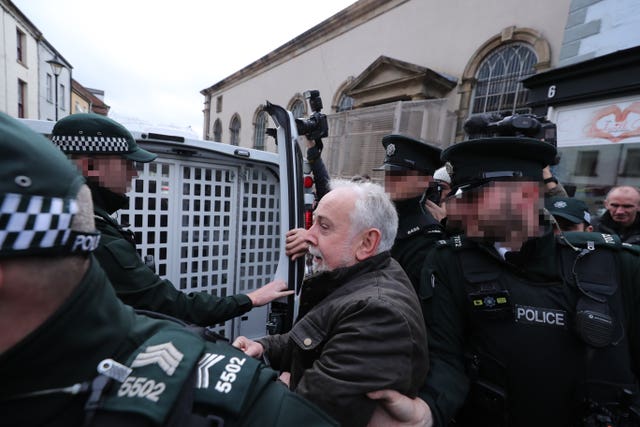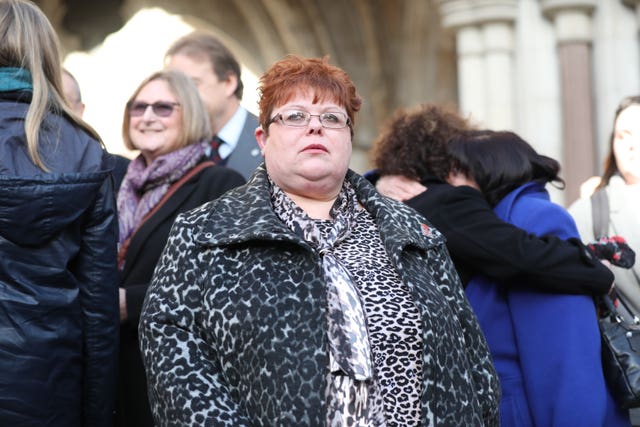
Relatives of four British soldiers killed in the Hyde Park bombing are asking a High Court judge to award “substantial damages” to “mark society’s condemnation” of the bombers.
Family members of Royal Household Cavalry men who died in the July 1982 blast brought a civil action against convicted IRA member John Downey after a criminal case collapsed at the Old Bailey in 2014.
A High Court judge ruled last year that Downey was an “active participant” in the bombing and was jointly responsible with others for the attack, which left 31 other people injured.
At a remote High Court hearing on Tuesday, lawyers said the legal action was brought to “vindicate” relatives of victims who were unable to achieve any resolution through the prosecution and imprisonment of the bombers.

They said there should be a “substantial, punitive award of exemplary damages to reflect society’s disgust, amount to a deterrent and to mark society’s condemnation of such actions”.
Squadron Quartermaster Corporal Roy Bright, 36, Lieutenant Dennis Daly, 23, Trooper Simon Tipper, 19, and Lance Corporal Jeffrey Young, 19, were killed by a car bomb as they rode through the central London park to attend the Changing of the Guard.
The legal action is being brought against Downey by Sarah Jane Young, L/Cpl Young’s daughter, on behalf of herself and other victims’ relatives.
In addition to the exemplary damages – to be set at whatever figure the court considers appropriate – Ms Young is seeking more than £750,000 for psychiatric damage she suffered as a result of her father’s death.
Her barrister Anne Studd QC told the court that, as a four-year-old, Ms Young watched from her nursery window as her father left on horseback, never to return, before hearing the blast and seeing injured soldiers return to the Knightsbridge barracks.
At the outset of Tuesday’s hearing, Ms Studd told the court: “The murder of four members of the Household Cavalry on 20 July 1982 in Hyde Park, on their way to the Changing of the Guard, was a defining moment in the IRA attacks on the British establishment.
“The claimant is but one victim of those attacks but she brings this claim for assessment of damages arising from the brutal murder of her father, to vindicate herself and others who have been unable to achieve any resolution of their claims though the state’s more usual channels of prosecution and the imprisonment of those responsible.
“In their case the state failed and their situation was grossly exacerbated by the wrongful issue of an ‘on the run’ letter which resulted in Mr Justice Sweeney staying the indictment against the defendant on grounds of abuse of process.”
Following a two-day trial in December last year, Mrs Justice Yip found that Downey was responsible for moving the car filled with explosives in the days before the attack, after hearing evidence that his fingerprints were found on a parking ticket.
The judge said: “This was a deliberate, carefully planned attack on members of the military.
“I have found that the defendant was an active participant in the concerted plan to detonate the bomb, with the intent to kill or at least to cause serious harm to members of the Household Cavalry.”

Downey, from Co Donegal, did not play any part in the trial but filed a written defence denying any involvement in the attack.
Ms Studd said he had been notified about the damages assessment taking place, but he has not responded and is not involved in the hearing.
The car bomb left in South Carriage Drive killed the four soldiers as they paraded from their barracks to Buckingham Palace.
Two were killed instantly while L/Cpl Young and Maj Bright died within days.
Seven horses had to be put down and another horse, Sefton, survived terrible injuries.
Downey was wanted by police in connection with the blast from May 1983, and he knew he was wanted from at least October the following year, but a decision was taken in 1989 not to seek his extradition to the UK from Ireland.
He eventually faced four counts of murder and doing an act with intent to cause an explosion at the Old Bailey in 2014 in relation to the blast.
However the trial dramatically collapsed after it was revealed he had mistakenly been given a written assurance he was not wanted in connection with the blast under the controversial “on the runs” scheme as part of the Northern Ireland peace process.


Comments: Our rules
We want our comments to be a lively and valuable part of our community - a place where readers can debate and engage with the most important local issues. The ability to comment on our stories is a privilege, not a right, however, and that privilege may be withdrawn if it is abused or misused.
Please report any comments that break our rules.
Read the rules hereComments are closed on this article